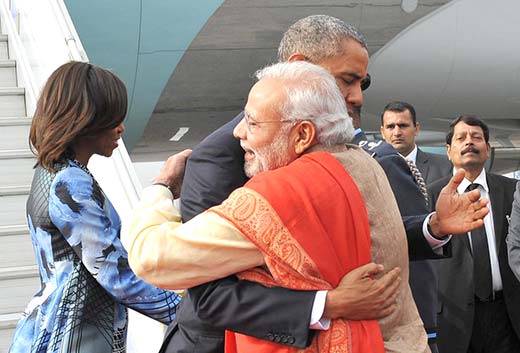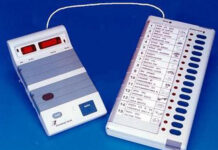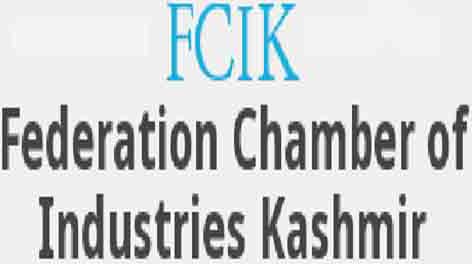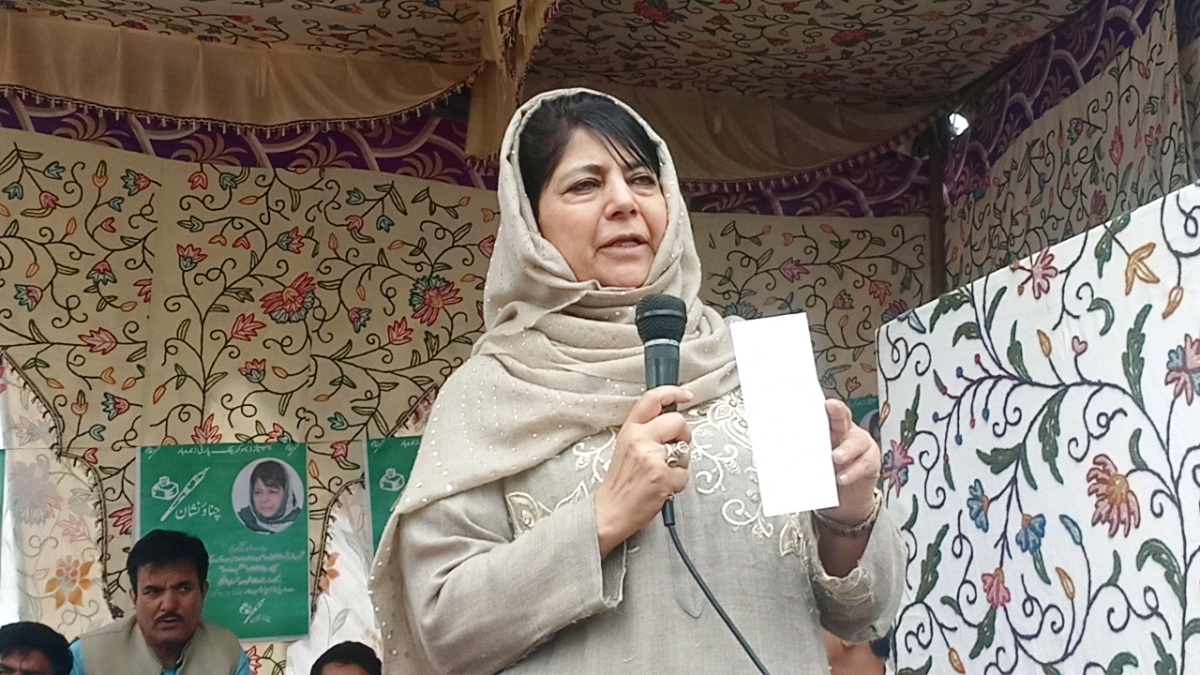US president Barak Obama’s silence over K-issue and his bonhomie with Indian PM Modi signals end of an era for hopeful Kashmiris. Shah Abbas tries to find out the storm behind the silence that is about to reshape the volatile South Asia
 US president Barack Obama, during his recent visit to India maintained complete silence over Kashmir issue. The “K” word was not brought up at all; not even while devouring Nadur: Lotus stem from the lakes of Kashmir served as a delicacy, which was reportedly on the menu.
US president Barack Obama, during his recent visit to India maintained complete silence over Kashmir issue. The “K” word was not brought up at all; not even while devouring Nadur: Lotus stem from the lakes of Kashmir served as a delicacy, which was reportedly on the menu.
From the biggest advocate of the “Change mantra” this certainly came as a big shift.
Many in Kashmir, hoping at least a mere mention of the restive region were disappointed. America has been largely seen as sympathetic to Kashmir if not a supporter of the separatist movement. Her stand, in the international diplomatic arena, has not been antagonistic. In the past, many a times, the US has offered her mediation between India and Pakistan on Kashmir; which would always irk India.
But foreign policies of a powerful country like US do not change all of a sudden like the menus of its presidents. It takes decades to make or change a “strategic partner” and at times the decision shifts the cold war to a particular region.
In 2009, then American ambassador to New Delhi, David Mulford in one of his confidential cables to Washington cautioned the new US government under Barack Obama that India viewed America’s Kashmir policy as skewed because it was perceived having “generous tilt” towards Pakistan.
“The argument offered by Indians against any third party role in Kashmir is that the US is not an impartial arbitrator because it has other compelling interests – such as ensuring Pakistani cooperation on Afghanistan – that favour a tilt towards Pakistan,” the cable leaked by WikiLeaks said.
The anxiety of New Delhi was not unjustified. In fact, when Obama was campaigning for presidency he told Time magazine, in an interview that if elected American role in resolving the Kashmir dispute between India and Pakistan would be his priority.
But, six years later, the most powerful man on earth gave “K” word a miss during his visit to evolving “strategic partner” with India. He rather cleared the prestigious civil nuclear deal with his “friend” Modi, whom he fondly equated with a “Bollywood star”.
Many analysts in India, known for working on the Track-II front to grease Indo-US relationship, believe that it was the “skilful diplomacy” of Mulford which helped India succeed in bringing about much sought after change in America’s Kashmir policy.
“Relationship of the two States has now been extended to economic collaboration including enhanced trade and investment so United States cannot afford to annoy India which has every potential to harm US interests now,” said one of the Kashmiri analysts who used to meet Mulford.
Raashid Maqbool, a Phd scholar and Srinagar based journalist said, “It is more about the potential of strengthening than harming American interests that has brought the two countries so much close to each other. India needs America and the latter needs the former badly too. American economy is desperately in search of a collaborator that can salvage it and what better choice can be there than India that has ripe and favourable markets bulging with promising economic opportunities, lucrative for international investors”.
Kashmir is a cause of tensions between India and Pakistan. It is also a reflection of their general state of animosity. But now, when US had decided to come close to New Delhi, its silence over Kashmir is obvious.
Given the fact that US do not have a great deal of leverage on Kashmir issue, it is concentrating on long term cooperation with India.
Washington may not have a considerable influence in Kashmir, even then those who claim to be the part of Track-II diplomacy between India and Pakistan over Kashmir, do not want to unlock their tongues when asked about the change in the America’s foreign policy.
This correspondent called many such “influential” people who talked in length about the nature of a unipolar world and the economic interests in it but did not want to be quoted. “Perhaps to ensure their future US visas,” Rashid said.
After the end of the cold war and the bipolar world, Pakistan was otherwise no more considered as a frontline state. Analysts believe that five years after the Second World War were very momentous which witnessed the division of the subcontinent in South Asia and the creation of Israel in the Middle East. These two significant developments gave rise to the two long standing political disputes of the world: Kashmir and Palestine.
Pakistan after its creation remained darling of the West for many decades, especially till the breaking of the erstwhile Soviet Union.
The following phase brought China and India against each other. While the former preferred Pakistan the latter started coming close to Washington.
In the meantime US started dictating terms to the world however, New Delhi felt irked by the growing relations between Islamabad and Beijing.
New Delhi started to lure Washington by its huge economic market and US too after somehow controlling the recession decided to invest immensely in India.
The US investors very recently discovered a hard economic reformist in Prime Minister Nerendra Modi who according to them could go to any extent to secure an investor.
“The US investors wanted hard reforms so that their investments are secured and Modi seems right choice on the basis of his limited but hardest Gujarat formula,” said a political and economic analyst who works for a multinational company.
That is why Obama came and embraced Modi. Obama also cleared much awaited civil nuclear deal with India pushing Pakistan further to wall.
The times ahead for the south Asia are more testing as Beijing and Islamabad are possibly bound to compete the US and New Delhi for their respective interests.
The situation is already indicating rise of a new order in the region which is likely to have its one end in Kabul as well where Ashraf Gani has already started showing eyes to Nawaz Sharief.
Those who are disappointed by the fact that Obama skipped the mention of the “K” word might be looking towards Beijing now for its retaliatory measures. Russia too was a possible destination of such eyes but Ukraine has faded the road.















